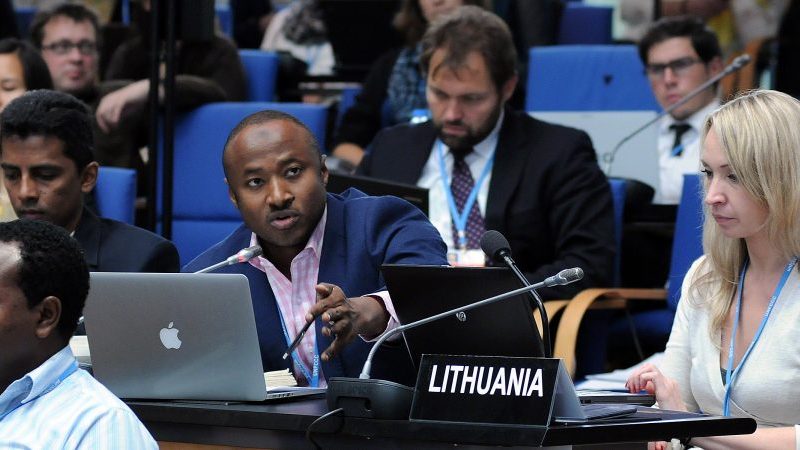African and German officials defended the EU on Tuesday against allegations of hijacking an “Africa-led” clean energy programme.
As Climate Home exclusively revealed last month, the Africa Renewable Energy Initiative’s (AREI) top official Youba Sokona resigned in protest over supposed EU interference. EU commissioner Neven Mimica and France’s Ségolène Royal were accused of bypassing African governance to force through approval of 19 projects.
On the sidelines of climate talks in Bonn, Seyni Nafo, chair of the Africa group of climate negotiators, downplayed the controversy.
Chad president Idriss Déby and Guinea president Alpha Condé were on the board that approved a list of 19 projects drawn up by European experts.
“You can say anything you want about them, but I don’t think those two are anybody’s puppet,” said Nafo. “I think those two make their own decisions. And surely they are not going to be influenced in that way by a minister, or by a commissioner of the EU.”
Investigation: EU, France accused of hijacking ‘Africa-led’ clean energy scheme
The AREI was conceived ahead of the historic 2015 Paris climate summit to green Africa’s development and build support for an international deal. G7 countries promised to mobilise $10 billion of investment by 2020 for 10GW of “new and additional” clean power capacity across the continent.
Central to its mission was African ownership, in a sphere where donors are often perceived to set the agenda.
Sokona’s key complaint was that the Europeans imposed a list of projects at the last minute, with no regard to the criteria his team had designed to protect the interests of African communities. A spokesperson for the European Commission confirmed its experts drew up the shortlist, but stressed this was at the request of the AREI board.
Nafo noted technical experts from both continents agreed before the critical March board meeting to put the 19 projects forward for consideration “on an exceptional basis”. There would be opportunities to revise the list and for civil society to scrutinise the projects later, he added.
Comment: EU must stop trying to dictate Africa’s clean energy future
Speaking on the same panel, Frank Fass-Metz, German commissioner for climate policy and finance from the ministry for economic cooperation and development, urged caution.
“Criticising the decision of the board is a criticism to all board members. It is a statement on how also these African leaders decided in the board meeting,” he said in response to a question from Climate Home.
While Sokona’s leaked resignation letter expressed strong concerns about the process, he has yet to speak publicly about the affair.
Fass-Metz added: “There was a disagreement from Youba, on what happened at the board meeting, but I will not make a judgement on whether his resignation was due to what happened at the board meeting, or whether other reasons are relevant as well. That’s something where Youba needs to convey his messages to the outside world.”
At time of publication, Sokona had not responded to a request for comment.
Weekly briefing: Sign up for your essential climate news update
The Pan African Climate Justice Alliance (PACJA) presented a survey of 25 African civil society organisations. All agreed they should have voting rights on the AREI steering committee. None were present even as observers when the decision was made about the first 19 projects.
“[We want] to be officially and concretely involved in the decision making, because we bring the voice from the ground,” said PACJA’s Augustine Njamnshi.
The survey identifies rural energy access as a top priority – and the small-scale solar power that can reach where power grids do not. The International Energy Agency estimates 600 million Africans have no access to electricity.
Donor countries, in contrast, tend to favour large infrastructure projects that attract private investment and relieve pressure on public finances.
In a heated discussion, Njamnshi said he was “not convinced” by Nafo’s assurances around transparency. “I want to say that that is the right spirit. We need to see the practice. We cannot solve a problem with the same mindset that created it. Why is Africa still in darkness as far as energy is concerned?… Until and unless you make governance a culture of this initiative, we are nowhere.”
